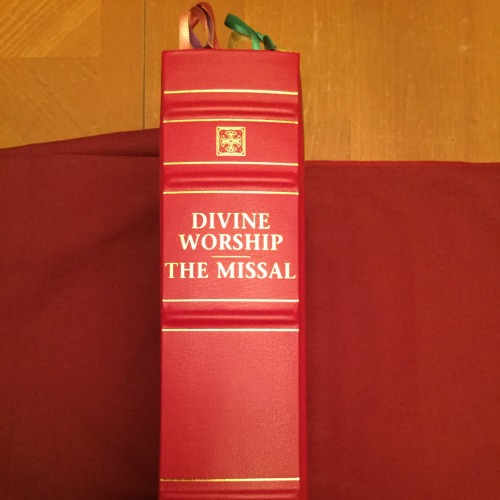The Liturgical Patrimony of the (Anglicanorum Coetibus) Ordinariate
 |
| NCRegister Image |
An excerpt from the Unofficial Primer found here at this blog. Click on the title/link below for a full read.
Of the liturgical patrimony, Fr. James Bradley has said that
"(t)he 'ingredients', we might say, have been weighed and measured into something which is altogether “new”, and yet instantly recognizable as an authentic expression both of the Roman Rite and the Anglican liturgical patrimony.
"With this in mind we might conclude with two simple points. First, the preservation of the Anglican liturgical patrimony within the Catholic Church is definitively achieved in the texts of Divine Worship. To be sure, other means of expressing this may be found within the life of the ordinariates and, as we have said, this discernment is not over—how can it be? However, it is the liturgical books of Divine Worship that must now be considered the principal, and even essential means of transmitting the Anglican liturgical patrimony in the Catholic Church, both for the faithful of the personal ordinariates and as a treasure to be shared. This is an explicit expectation of the apostolic constitution and, as we have demonstrated, a constitutive element of the vision expressed therein.
"Secondly, with the advent of Divine Worship the communities of the personal ordinariates need no longer consider their experience as Anglicans as the sole measure of their liturgical life—constantly referring back to what was done on the other side of the Tiber. Rather, whilst always keeping that rich history in mind, we now find in the promulgated books of Divine Worship the authentic expression of the juridical, ecclesiological, and spiritual life of the personal ordinariates, refined and presented anew by the Church, for the edification of all. Thus it is this “codified” Anglican patrimony, and not the subjective experience or individual expectation, upon which the merit and worth of each endeavour within the life of the personal ordinariates may now be measured."
https://ordinariate.net/liturgy-spirituality
Why do we - why must we - in the Ordinariate give zealous attention to the faithful realization (celebration) of the Sacred Liturgy? The following excerpt from an article by David Fagerberg, Ph.D., provides a convincing foundation why the faithful celebration of the Mass is paramount for the Christian.
(1) Liturgical theology. The Eastern approach to the Christian faith is fundamentally liturgical. Theology is an articulation of the Church’s self-awareness as an eschatological worshiping community. In Alexander Schmemann’s view, liturgical theology is not an object of theology, “but above all its source, and this by virtue of the liturgy’s essential ecclesial function: i.e., that of revealing by the means which are proper to it (and which belong only to it) the faith of the Church; in other words, of being that lex orandi in which the lex credendi finds its principal criterion and standard.” Liturgy is truly a theologia prima – the primary mode in which theology is conducted. The test to be applied on all doctrine is not so much whether it is logical, or will be accepted in academic journals, or coordinates with the reigning philosophy of the day, the test is whether it is ortho-doxia, i.e. does this teaching (dokein) give right glory to God?
Of course, we rely on the Holy Ghost to perfect our prayer. Romans 8:26-27
Likewise the Spirit helps us in our weakness; for we do not know how to pray as we ought, but the Spirit himself intercedes for us with sighs too deep for words. And he who searches the hearts of men knows what is the mind of the Spirit, because[a] the Spirit intercedes for the saints according to the will of God.We enter into right relationship with God when our worship gives right glory to God. A priest's actions, for example, that obscure the truth, goodness and beauty of the Mass, risk leading his flock into a strange world that, while it resembles in part the Christian Faith, may very well be a means of alienation from the Catholic whole.
To conclude, a reminder from Fr. Bradley:
Thus it is this “codified” Anglican patrimony (found in the promulgated books of Divine Worship), and not the subjective experience or individual expectation, upon which the merit and worth of each endeavour within the life of the personal ordinariates may now be measured."




.png)

Comments
Post a Comment
Your comments will be appreciated and posted if 1) they are on topic and 2) preserve decorum.
Stand by your word.